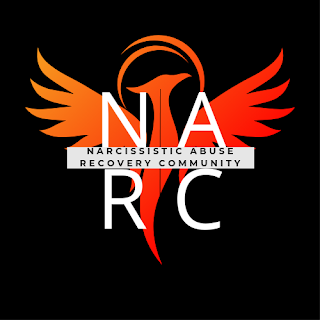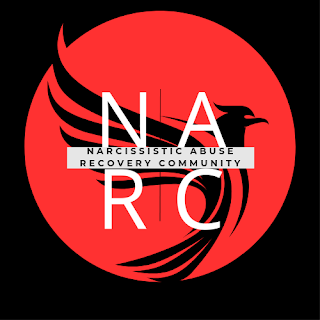Coercive control is a haunting reality for many, intricately tied to the insidious patterns of intimate partner violence. It’s a form of abuse that often goes beyond emotional manipulation, bleeding into physical, sexual, and psychological realms that can leave lasting scars. For those who have lived it, the experience is a devastating journey through a dark maze, where love morphs into a weapon and the very essence of who you are is systematically dismantled.
Intimate partner violence is not just about physical blows; it encompasses a broad spectrum of abusive behaviors, including sexual assault. Many people assume that violence in relationships is limited to physical confrontations, but it extends far deeper. Sexual coercion and assault can become tools of control, reinforcing the abuser’s power and eroding the victim’s sense of agency. The trauma of these violations can be profound, leading victims to question their worth, their reality, and ultimately their desire to live.
For me, the reality of coercive control became painfully evident during a relationship that lasted less than a year. I was drawn in, captivated by the initial charm and attention, only to find myself engulfed in a nightmare of manipulation and emotional abuse. It’s hard to describe how quickly everything I knew about myself became clouded by doubt and fear. The moments of affection were often followed by intense control and belittlement, leaving me feeling like a mere shell of my former self. I could feel my identity being stripped away, layer by layer, until I was left with nothing but confusion and despair.
Gaslighting became a constant in my life, where my perceptions and feelings were invalidated, twisting my reality until I no longer trusted my own thoughts. I remember moments when I would confront my partner about their behavior, only to be met with hostility and blame. “You’re overreacting,” or “You’re just being dramatic,” would echo in my mind, eroding my confidence and reinforcing the belief that I was the problem. This psychological manipulation is designed to isolate victims further, making them feel alone and unworthy of love or support.
Isolation is a powerful tool in the hands of an abuser. My world began to shrink as friends and family were pushed away, often through smear campaigns that painted me as unstable or untrustworthy. It’s remarkable how quickly someone can turn your support system against you, spreading lies that leave you feeling vulnerable and exposed. The loneliness was suffocating; it felt as though I was cut off from the world, trapped in a nightmare with no escape. I lost my home, my belongings, and my sense of self. I was left homeless and vulnerable, a situation that left me feeling utterly powerless.
The psychological toll of this kind of abuse is devastating. As the manipulation and isolation intensified, so did my despair. I found myself at a breaking point, grappling with feelings of hopelessness that ultimately led to nine suicide attempts. Each time I survived, the weight of my trauma bore down heavier, making it increasingly difficult to envision a future free from pain. The thought of ending my life felt like the only way to escape the torment, the only way to silence the incessant voice that told me I wasn’t enough, that I didn’t deserve to be loved.
In those moments of crisis, I longed for understanding and connection. I wanted someone to see past the facade of normalcy and recognize the chaos beneath. I wanted my voice to be heard, my experiences validated, yet I felt trapped in a cycle of shame and silence. It’s essential for others to understand that the push toward suicide is not a reflection of weakness but rather a desperate response to unbearable pain.
The experience of coercive control often extends into a terrifying reality where the abuser seeks to silence their victim through extreme measures, including false accusations and legal battles. My journey was marked by such horrors, where I faced a criminal trial that was built on lies, designed not only to defame me but to obliterate my existence. The pain of false charges weighed heavily on me, turning my life into a courtroom drama filled with anxiety and fear, all while I was still grappling with the emotional scars of the abuse.
It’s an insidious tactic used by abusers to maintain control. In my case, not only was I fighting against the psychological manipulation of coercive control, but I was also thrown into a legal battle that felt rigged from the start. The abuser, Frankie Zerella, sought to erase my voice by fabricating stories that painted me as a villain rather than the victim I was. The criminal trial became a brutal game of character assassination, where I was left feeling exposed and vulnerable, a pawn in a vicious attempt to silence me once and for all.
Amidst all of this chaos, the loss of my belongings felt like a physical representation of the emotional devastation I was experiencing. My property, everything I had worked for and held dear, was stolen and tossed aside as if it were nothing more than refuse. Each item discarded represented a piece of my identity, my history, and my sense of self, stripped away by someone who thrived on control and domination. Perhaps the most painful moment was when my dog’s ashes were callously discarded, a final act of cruelty that signified a profound loss. My dog was more than just a pet; he was a companion who brought me joy and comfort through some of my darkest moments. The ruthless disposal of his ashes felt like a violation that cut deeply, reinforcing the reality that I was up against someone who would stop at nothing to exert power over me.
Through this turmoil, I learned to fight back and reclaim my narrative. My journey toward healing began when I took my pain and turned it into purpose. I wrote two bestselling books, Voiceless: A Silent Epidemic of Suicide Due to Narcissistic Abuse and My Heartbreak Diary: My Journey Healing from Narcissistic Abuse. In these works, I detailed not only my struggles but also the insights I gained along the way. Through writing, I articulated the complexities of coercive control, intimate partner violence, and the journey toward healing. I found solace in my words, a way to reclaim my narrative and share it with others who might be experiencing similar struggles.
Creating a documentary centered on the narcissistic true crime of Wilton Manors was another avenue through which I could reclaim my voice. This project allowed me to shed light on the realities of coercive control and intimate partner violence, highlighting the stories of others who have suffered in silence. It was an opportunity to bring awareness to these often-hidden experiences, showing that the effects of such abuse are far-reaching and devastating. In sharing these stories, I hoped to foster understanding and empathy, encouraging conversations that might empower others to break free from their silence.
Healing loudly became my mantra a call to action not just for myself but for others. It’s a way of saying that our stories matter, that our pain deserves to be heard, and that reclaiming our voices is a powerful act of resistance. It’s about standing up against the forces that seek to silence us and finding strength in vulnerability. Each time I shared my story, I felt the fog of shame lifting, replaced by a sense of empowerment. I began to understand that healing doesn’t have to be a solitary journey; it can be a collective experience where we support one another and share our truths.
As I share my story, I hope to illuminate the complexities of coercive control and the profound impact it can have on one’s life. It’s a journey that many endure in silence, and I want to emphasize that you are not alone. If you’re feeling trapped or overwhelmed, remember that there is hope. Healing is possible, but it requires the courage to confront your reality and seek the support you deserve.
In raising awareness about coercive control and the intertwined nature of intimate partner violence, I want to foster understanding and compassion for those who have been affected. By sharing our stories, we can break the silence and create a community of support, reminding one another that we are worthy of love, respect, and a future free from the shadows of abuse. Together, we can reclaim our narratives and advocate for a world where no one has to endure the pain of coercive control in silence.
In this ongoing battle, let’s foster a culture of support and understanding. Let’s remind one another that we are worthy of love, respect, and safety. Together, we can illuminate the path for others, guiding them out of the darkness and into the light of healing and empowerment. No one deserves to suffer in silence, and it’s time for all of us to speak up, reclaim our voices, and demand the lives we deserve.
























